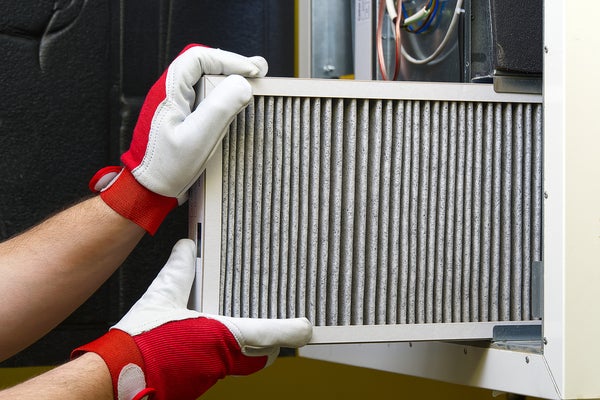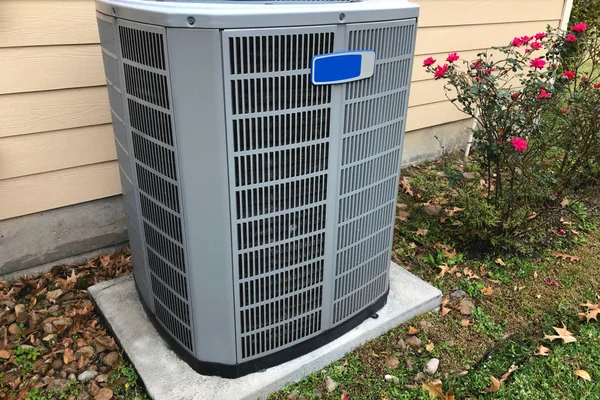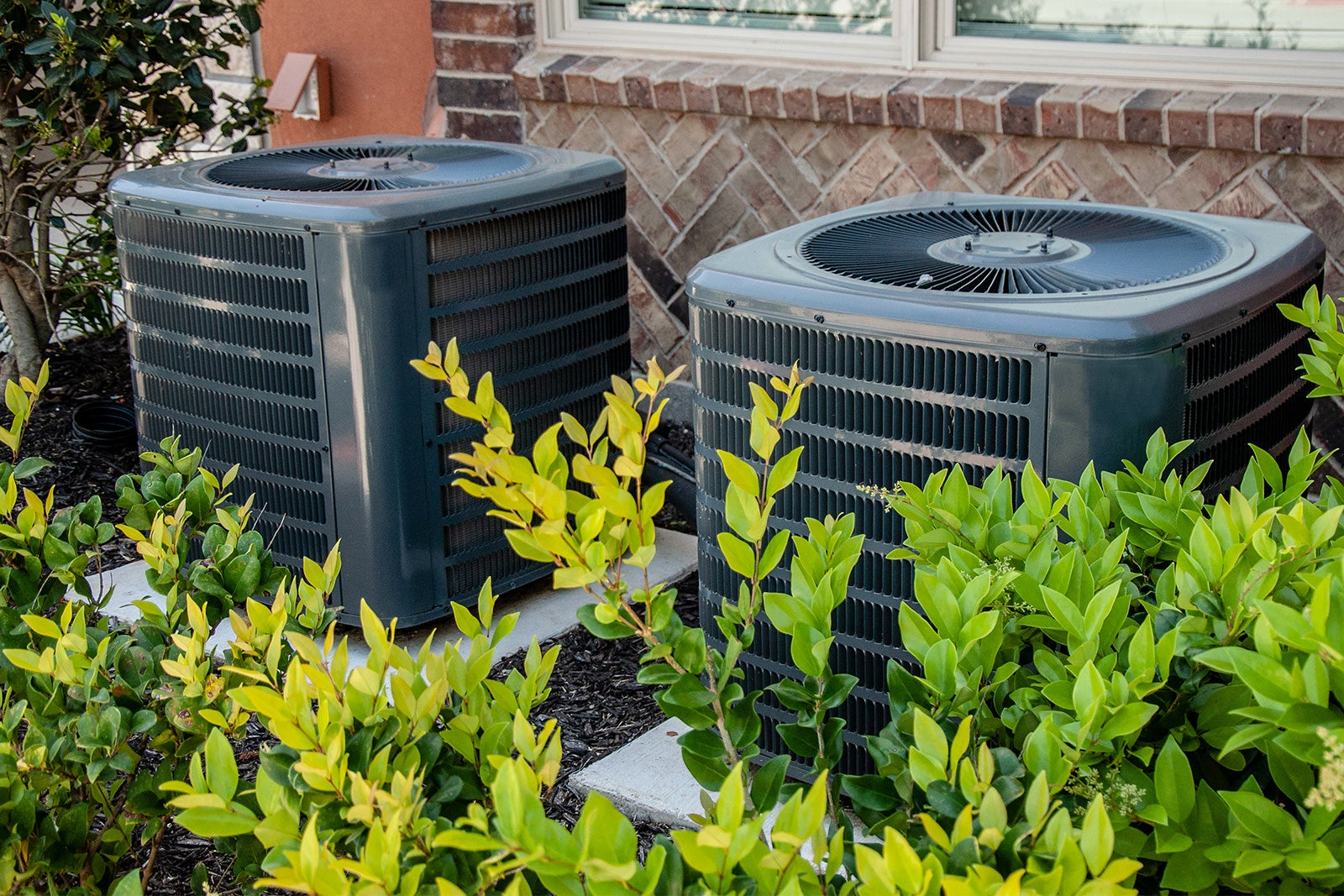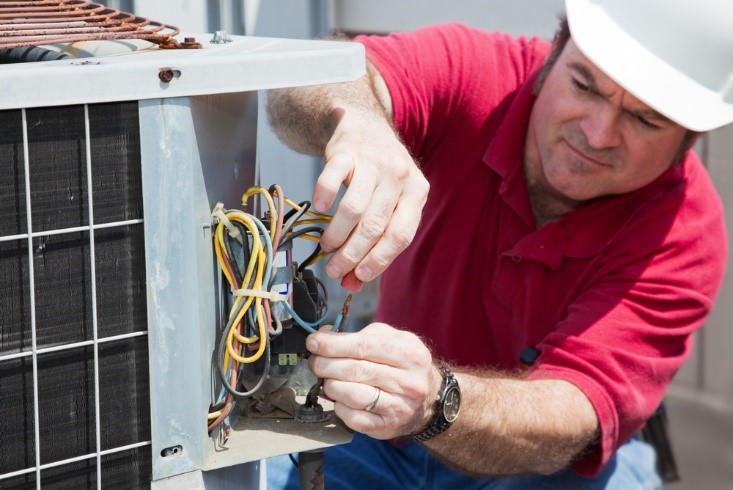How Often Should You Replace Your HVAC?
ENERGY STAR recommends that homeowners replace HVAC systems every 10 to 15 years. That’s typically how long it takes for major HVACcomponents in modern systems to show wear to the point where it’s more cost-effective to replace them. And when you’re staring at that big HVAC replacement costbill, remember that newer systems are more efficient, so at least your power bill should be lower.
Do I Just Need an HVAC Filter Replacement?
Generally, HVAC filters should be replaced anywhere from every 30 days to every six months, depending on the type of filter. The frequency of your HVAC filter replacement also depends on the air quality where you live, if you have pets, and the size of your home. Use a website like Filter buy to find the right hvac filter for your system. Once you have your new filter, one of our AHS hvac pros can help you install your new HVAC filter.

What to Look For When Buying a New HVAC Unit
With so many HVAC options out there, deciding which unit to purchase can be overwhelming. Here are some important considerations:
- Use the right professional contractor. Your new HVAC unit’s efficiency can be determined by its installation, so it’s imperative that you work with a reputable contractor. Interview several candidates and get detailed quotes from each.
- Determine the correct unit size. The best way to get an accurate size estimate is to have your home professionally evaluated. Make sure your contractor performs a load calculation, which takes into account the size of your house, the climate, the roof material, the orientation of the unit, the number of units, and more. An HVAC installation professional will consider factors like whether or not your home has a crawlspace or basement, how much insulation there is in the attic, how many floors it has, the number of people living there, what kind of doors and windows it has, how high the ceilings are, and what your desired indoor temperature is. Most homes will need a new HVAC unit sized around 20 BTUs per square foot.
- Don’t ignore the SEER rating. The higher the Seasonal Energy Efficiency Ratio (SEER) rating, the more efficient the unit. Although a unit with a higher SEER rating may be more expensive, it could end up saving you more money in the long run.
How to Save Money on a New HVAC Unit?
If you expect to have a tax bill for 2023, it might be a good year to get an A/C replacement, especially if your unit is on its last leg anyway.
Air conditioner units labeled ENERGY STAR Most Efficient meet the requirements for the tax credit. You need to get either a split or packaged system that meets specific energy efficiency requirements. For a split system, you would need a SEER rating of 16 or higher or an Energy Efficiency Ratio (EER) rating equal to 13 or higher. For a package system, you would need a SEER rating of 14 or higher and an EER rating of 12 or higher. You can also get federal tax credits for high-efficiency heating units, heat pumps, boilers, and biomass stoves.
To further offset some of your HVAC replacement costs, there are often residential efficiency tax credits and rebates available on the state level. You also may be able to get money back for your installation of a new A/C or heating unit in the form of a rebate from your local utility company.
Should I replace my AC and Heating Unit together?
Heating units usually last longer than air conditioners— the average A/C unit lasts 10 to 15 years, while the average heating unit lasts 15 to 20 years—so one might wear down sooner than the other. If your heating unit still has plenty of life left when your A/C needs replacing, consider keeping it for a while.
Based on our earlier coverage of average costs, replacing both a heating unit and an A/C together will cost more than just the cost to replace the A/C unit itself. But, if you do have the budget to replace both, you could save the headache of unmatched systems. If you’re installing a new, high-efficiency A/C, it’s a good idea to pair it with a high-efficiency heating unit.
What to Keep in Mind After the HVAC Replacement
Nothing says “investment” like a home system that you paid a pretty penny for. Unfortunately, regardless of how much you end up spending on your HVAC replacement, it can still have some hiccups in performance every once in a while. So why not protect your investment—and your budget—from those unexpected costs? When you’re looking for the best home warranty for HVAC coverage, look no further.
An American Home Shield® home warranty plan protects your budget when your HVAC gives you trouble from normal wear and tear—no matter its age. Your new HVAC system will be covered because each of our home service plans includes air conditioning warranties and home heating warranties. If the covered problem can’t be repaired, we’ll replace your HVAC unit, subject to contract limitations and exclusions. Learn more about a home warranty & costs with American Home Shield.
*Repair/Replacement costs ranges are the twentieth and eightieth percentile of U.S. costs as reported in A Study of Homeowners’ Appliance and Home Systems Service Experiences, a nationwide survey of homeowners conducted in 2023 by ClearVantage for American Home Shield. Further reproduction or use is expressly prohibited.
**Sourced from Forbes.com Article "How much Does a New HVAC System Cost in 2024?"






